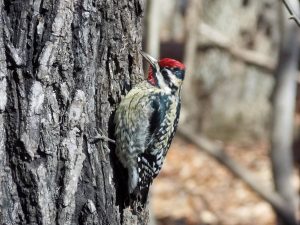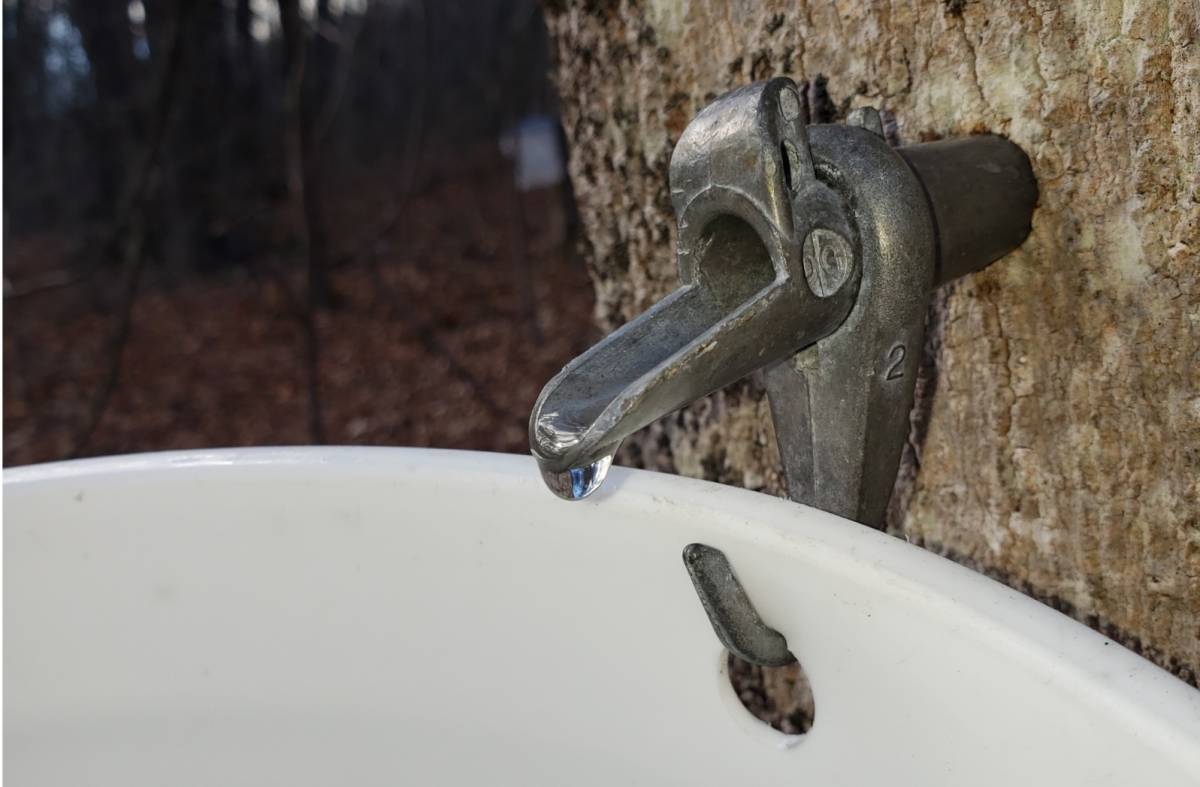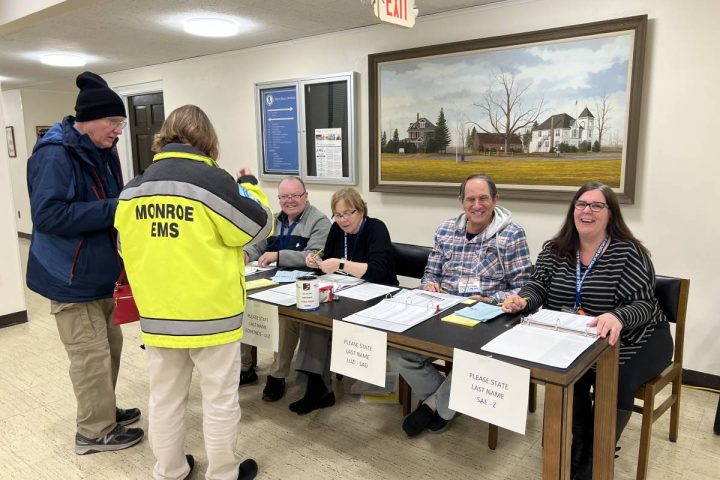Centennial Watershed State Forest, co-managed by the Connecticut Department of Energy and Environmental Protection, Aquarion Water Company, and The Nature Conservancy in Connecticut, has been recognized by Audubon’s Bird-Friendly Maple program for its management of a seven-acre sugarbush in the forest’s Means Brook Watershed Block in Monroe.
Through the Bird-Friendly Maple program (a collaborative effort between Audubon, Cornell, the New York State Maple Producers Association, and the Maple Syrup Producers Association of Connecticut), they manage their sugarbush — the forest area where maple syrup is produced— in ways that provide more resilient bird habitat.
“Sugarbushes don’t just make for great maple syrup: As the production season winds down, they become nesting and foraging habitat for declining songbirds like the Scarlet Tanager and Wood Thrush,” said Suzanne Treyger, senior forest program manager for Audubon Connecticut and New York.
“On a wider scale, healthy forested landscapes provide benefits like carbon sequestration and storage and watershed protection,” she said. “By creating a more structurally and biologically diverse sugarbush, maple producers can play a vital role in conservation that benefits birds and people.”
As a recognized sugarbush, this area of the state forest is managed in ways that help these birds raise the next generation of their species.
What makes a bird-friendly sugarbush?
- Young trees and shrubs provide cover, food, and nesting sites for Black-throated Blue Warbler and Wood Thrush.
- Snags (dead trees) are left standing to provide nesting sites for woodpeckers and White-breasted Nuthatch, and insects for Scarlet Tanager.
- Downed trees and other woody material are left on the forest floor for birds like the Ovenbird and Ruffed Grouse to take cover, nest, and forage.
“We’re so pleased that this site in Centennial has been recognized for providing high-quality bird habitat in addition its contributions to maple syrup production,” said Cynthia Fowx,

director of Saugatuck Preserves for TNC in Connecticut.
“But it’s not just about this outcome,” she said, “it’s also about a commitment to active forest management that results in a more resilient and productive forest over time.”
Information about Centennial Watershed State Forest can be found by clicking here.
All respectful comments with the commenter’s first and last name are welcome.






